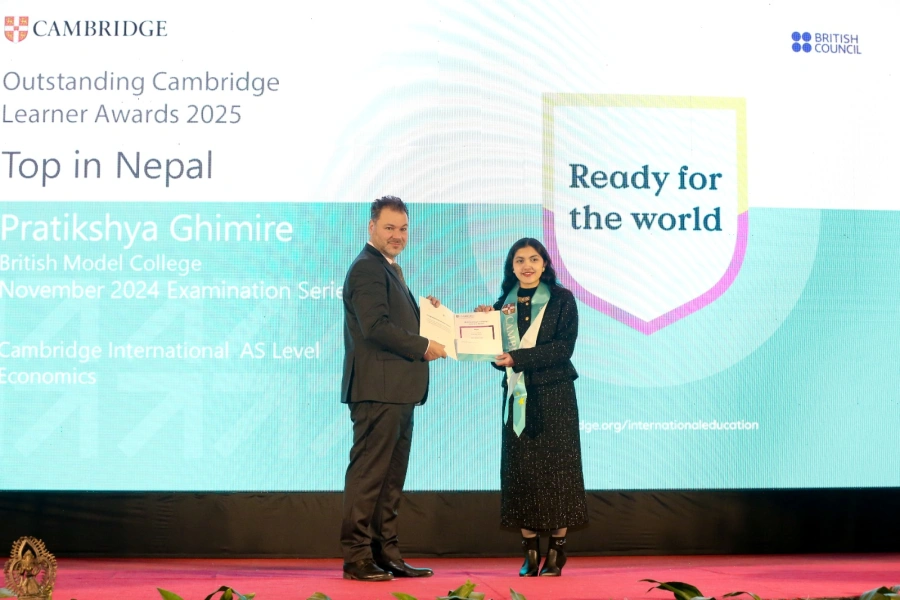US envoy hopes a talks could lead to a conclusive solution
KATHMANDU, April 27: Although it decided in November last year to hold fresh negotiation with Bhutan to resolve the problem of Bhutanese refugees once and for all amid donors beginning to withdraw their support for the remaining refugees, the government has failed to make any concrete progress in this regard.
Highly-placed government officials said they are yet to make necessary homework in this regard, although the government is put under pressure to work out a transitional arrangement for little over 6,000 refugees after some of the donor agencies including World Food Program began withdrawing their assistances.
Home Ministry Spokesperson Ram Krishna Subedi said the Ministry has forwarded a proposal to hold fresh negotiations with the Bhutanese side to settle the issues of remaining refugees, who are currently living in two camps in Jhapa. He said that Ministry of Foreign Affairs (MoFA) will take necessary initiatives in this regard.
Nepal pins hopes on new Bhutan govt for refugee repatriation

Senior officials at MoFA, however, said there has not been any progress yet.
A cabinet meeting held on November 19, 2018 had decided to hold further discussions among Ministers of Home Affairs, Finance, Foreign Affairs and secretaries of these ministries with regard to the proposal of the Home Ministry to take initiative to repatriate the remaining Bhutanese refugees. The meeting had also decided to prepare policy, strategy and work plan to resolve the problem of Bhutanese refugees.
Over 113,000 refugees from Bhutan have already been resettled in various eight countries after the launch of the third country resettlement program in 2007. The number of those resettled in various third countries includes 96,148 in the USA, 6,838 in Canada, 6,946 in Australia, 1,096 in New Zealand, 570 in Norway, 875 in Denmark, 358 in the UK and 329 in the Netherlands.
Altogether 6,626 refugees, who chose to snub the third-country resettlement program, are currently languishing in Shanischare and Beldangi camps in Jhapa district. Nepal has been consistently raising the repatriation issue in all meetings with the Bhutanese side.
During a mini BIMSTEC Summit held in Goa of India on the sidelines of BRICS Summit in October 2016, Prime Minister Pushpa Kamal Dahal had raised the repatriation issue with his Bhutanese counterpart Lyonpo Tshering Tobgay. Prime Minister Tobgay then had assured to discuss the future of the remaining refugees once the ongoing third country resettlement program was over.
Nepal had also raised the issue during the visit of chief advisor to the Interim Government Chief Justice Dasho Tshering Wangchuk, who led Bhutanese delegation in the fourth BIMSTEC Summit held in Kathmandu in August last year.
As Bhutanese refugee leaders in Nepal are also protesting against any preparations to settle them here, Nepal is looking forward to holding fresh talks with the Druk government to resolve the nearly three-decade-long Bhutanese refugee problem once and for all. Chairman of the Bhutanese Refugees Repatriation Representative Committee (BRRRC) Dr Bhampa Rai has been maintaining that Bhutanese refugees should be allowed to return not because of any need for localization but for the sake of their dignity and integrity.
US Ambassador to Nepal Randy Berry, who visited refugee settlements in Jhapa and Morang districts on Friday to gain the first-hand impressions about the situation of Bhutanese refugees, expressed hope that a dialogue between the Nepali and Bhutanese governments could lead to a conclusive solution of this protracted refugee situation.
“I am very pleased to see the many ways in which this group of refugees is increasing its ability to pursue livelihoods, boosting its resiliency and contributing to the local community. This would not have happened without assistance from UNHCR, the Government of Nepal, other donors and the local community,” a press statement issued by UNHCR-Nepal quoted Ambassador Berry as saying.
The US is one of the major donors to, and an important partner of, the UNHCR in addition to being the world's top resettlement country for refugees. “I am hopeful that dialogue between the Nepali and Bhutanese governments can lead to a conclusive solution of this protracted refugee situation,” the statement further quoted Ambassador Berry as saying.
Ambassador Berry was accompanied by UNHCR Representative in Nepal Bushra Halepota and Deputy Regional Refugee Coordinator from the US Embassy in Kathmandu Leah Zilversmit Pao. He met with local officials, held discussions with representatives from UNHCR and the International Organization for Migration, and spoke with refugees to learn more about the issues affecting them. He also observed various livelihoods programs including a mushroom farming initiative, designed to increase their self-reliance.




































